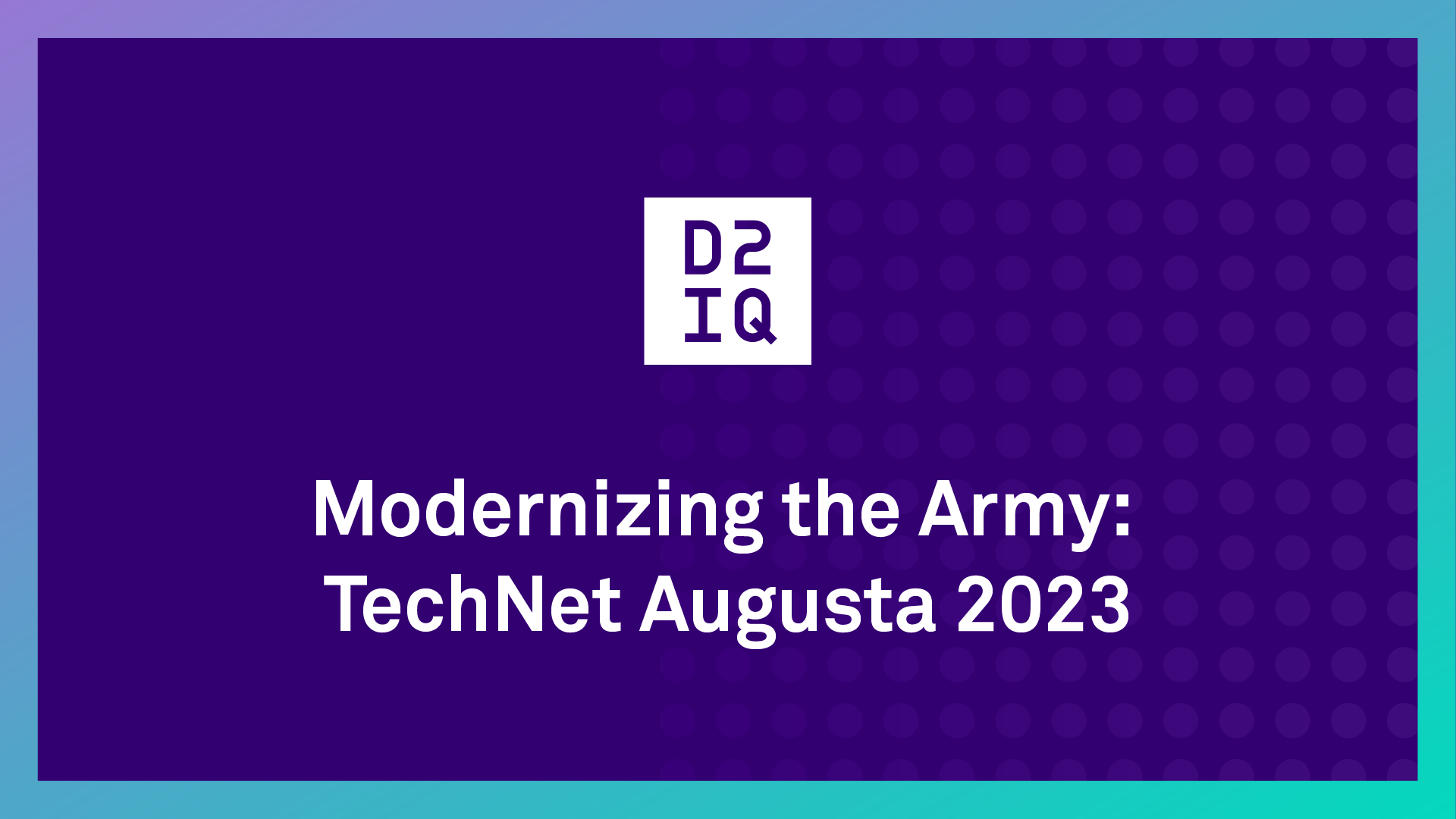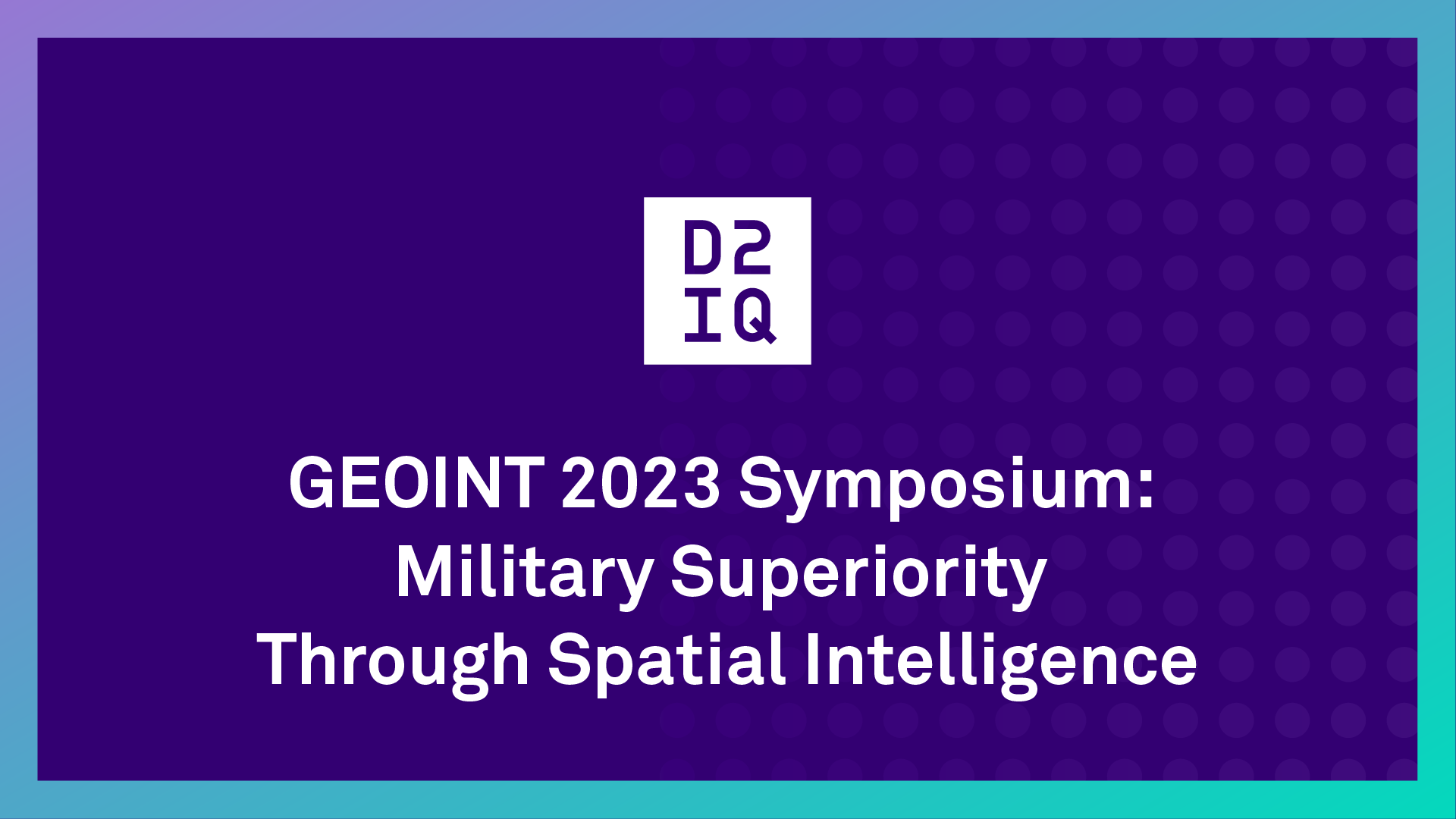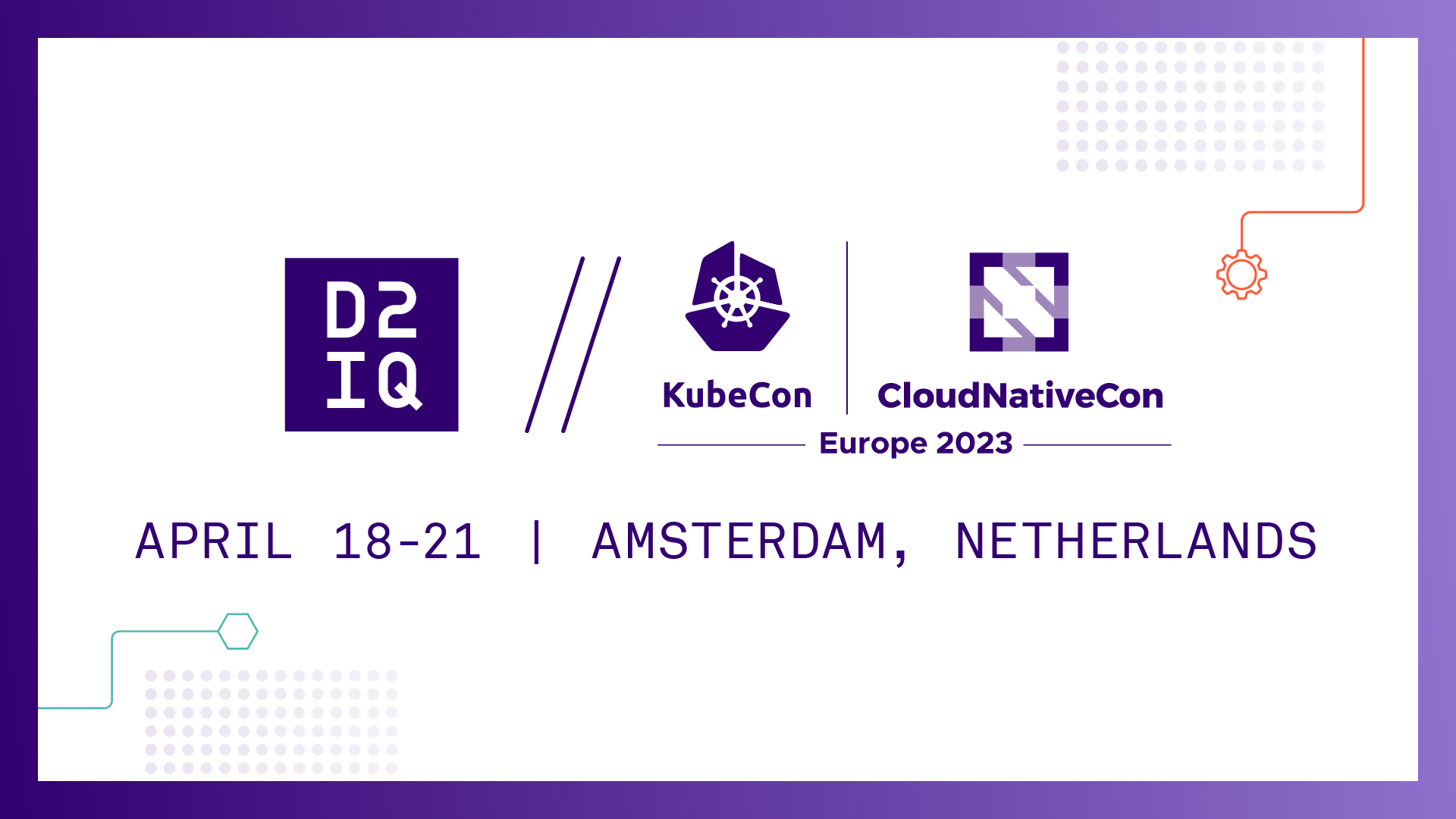KubeCon Europe 2023 Highlights: Instant Platform Engineering
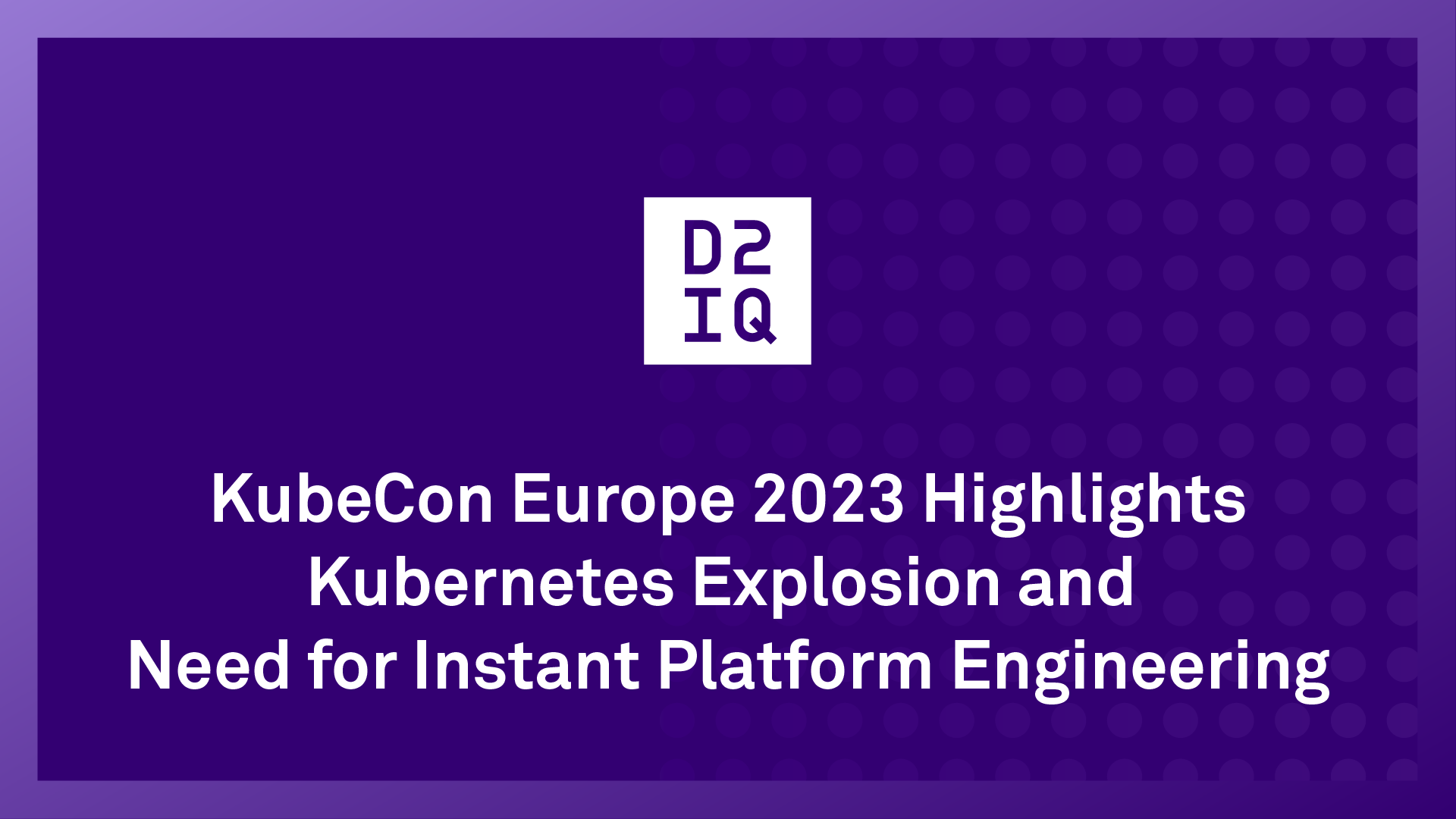
5 min read
- Watch Deepak Goel (CTO, D2iQ) discuss his views on Platform Engineering in an interview with theCUBE.
- Watch Jason Bloomberg's interview with The Cube, in which he names platform engineering among the key themes at KubeCon Europe 2023.
The CNCF’s flagship KubeCon Europe 2023 conference in Amsterdam last week was a vibrant sold-out affair that drew more than 10,000 attendees, 58% of whom were new to the conference, with another 2,000 people on the waitlist.
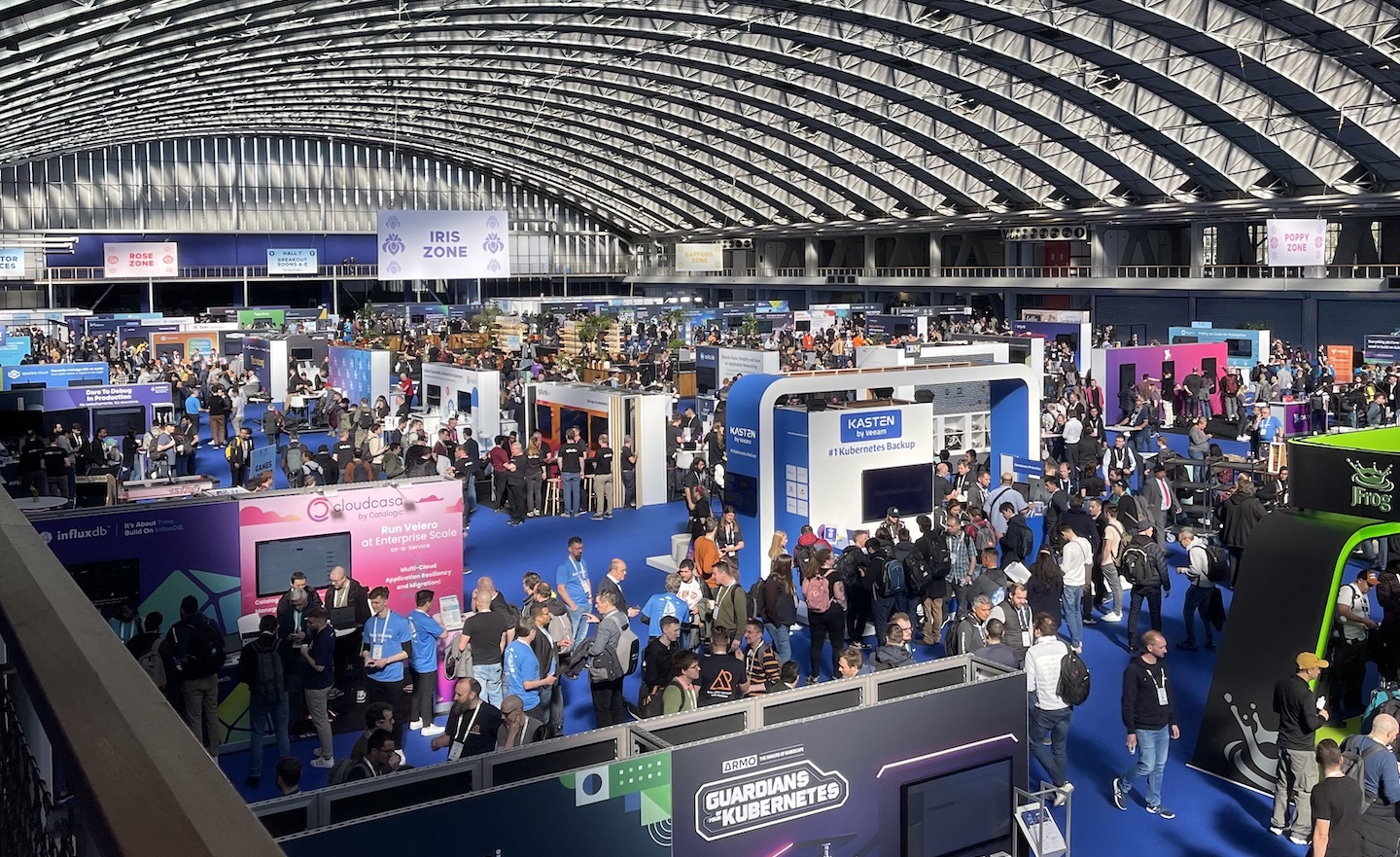
KubeCon Europe 2023: Solutions Showcase
As Futurum analyst Camberley Bates noted, “KubeCon Europe 2023 reflects the rising importance of this new platform.” It is not just about development, said Bates, “but rather all about the drive to adapt to the digital age of applications.”
Kubernetes is the IT infrastructure that will support the new apps and new development of the digital age, said Bates. “Call it containers, container-native, or Kubernetes – it is the next platform,” she said.
This view of Kubernetes’ ascendance matches the most recent CNCF annual survey findings that show Kubernetes becoming “the operation system of the cloud.”
D2iQ VP of Product Management Dan Ciruli believes the reach and significance of Kubernetes is even more extensive, with Kubernetes becoming the next data center.
Ciruli’s view aligns with the findings of the Linux Foundation and other observers who see Kubernetes underpinning the hyperconnected era in which the data center extends to the edge.
Platform Engineering Is Hot
Surveys show that Kubernetes complexity, security, and a skills gap are the top challenges organizations face in adopting Kubernetes. The KubeCon Europe 2023 keynote address identified three “complexities” that need to be mitigated:
- Managing configuration complexity at a global platform scale
- Painful Kubernetes upgrades
- Multi-cluster management
As I related in a recent article, there are a number of technologies and techniques that have emerged to simplify Kubernetes management. The movement to remove the burden of dealing with the complexities of Kubernetes from the shoulders of DevOps teams has caused platform engineering to become such a hot trend.
The momentum behind platform engineering has continued to accelerate since it emerged as a hot topic at KubeCon North America in November 2022. Jason Bloomberg, an Intellyx analyst who has followed the trend, noted in an interview with The Cube that platform engineering was among the key themes at KubeCon Europe 2023.
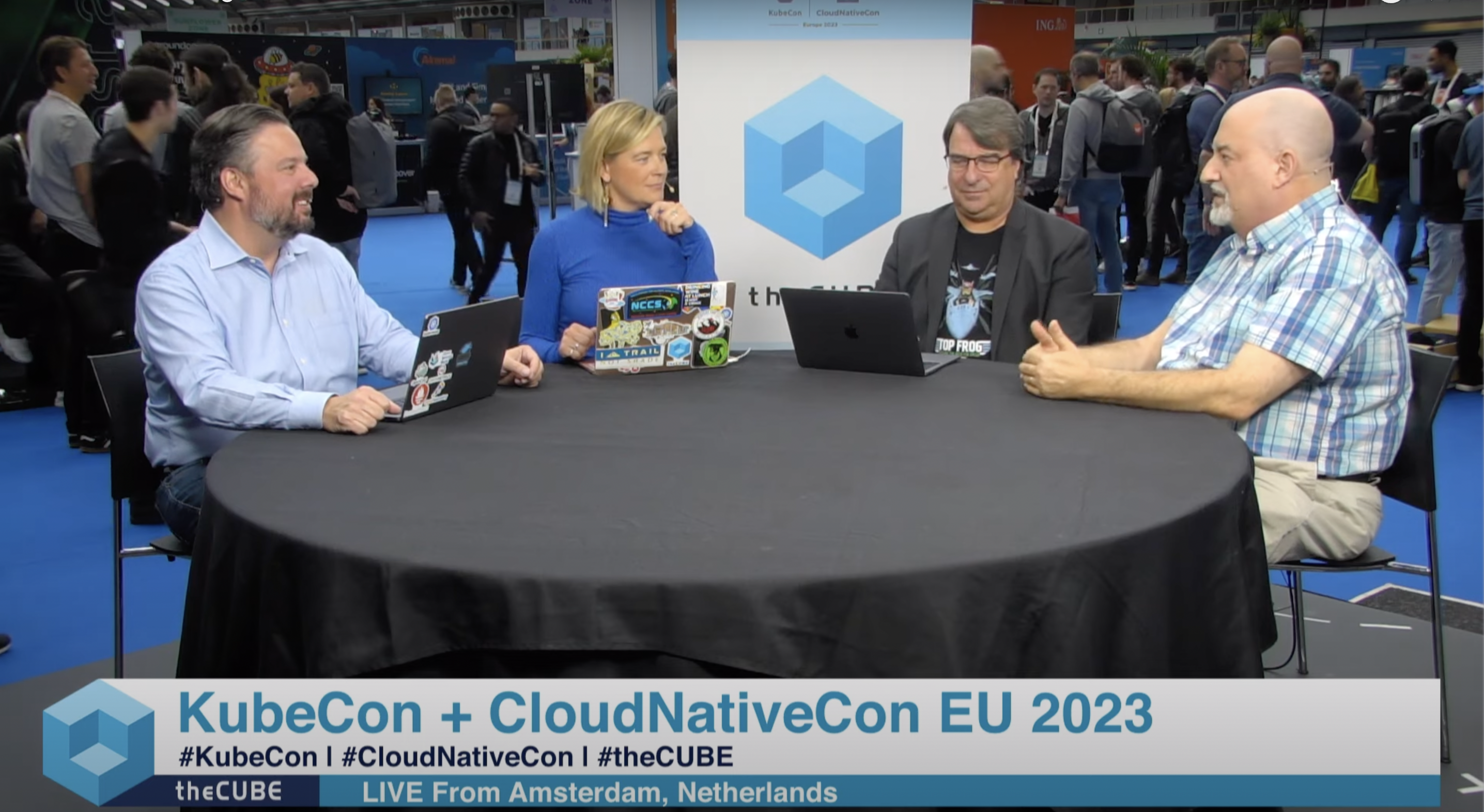
theCUBE, featuring: Rob Strechay, Savannah Peterson, John Furrier, Jason Bloomberg
Watch the Interview
A new and noteworthy development, said Bloomberg, was seeing so many vendors asserting their intention to provide a golden path, which is “essentially the established set of best practices that a platform engineering approach will not mandate but recommend.”
Instant Platform Engineering Is the Key
In an interview with The Cube, D2iQ CTO Deepak Goel was asked about his views on platform engineering. As Deepak explained, inefficiencies arise when DevOps teams who are not Kubernetes experts are tasked with deploying and maintaining Kubernetes environments.
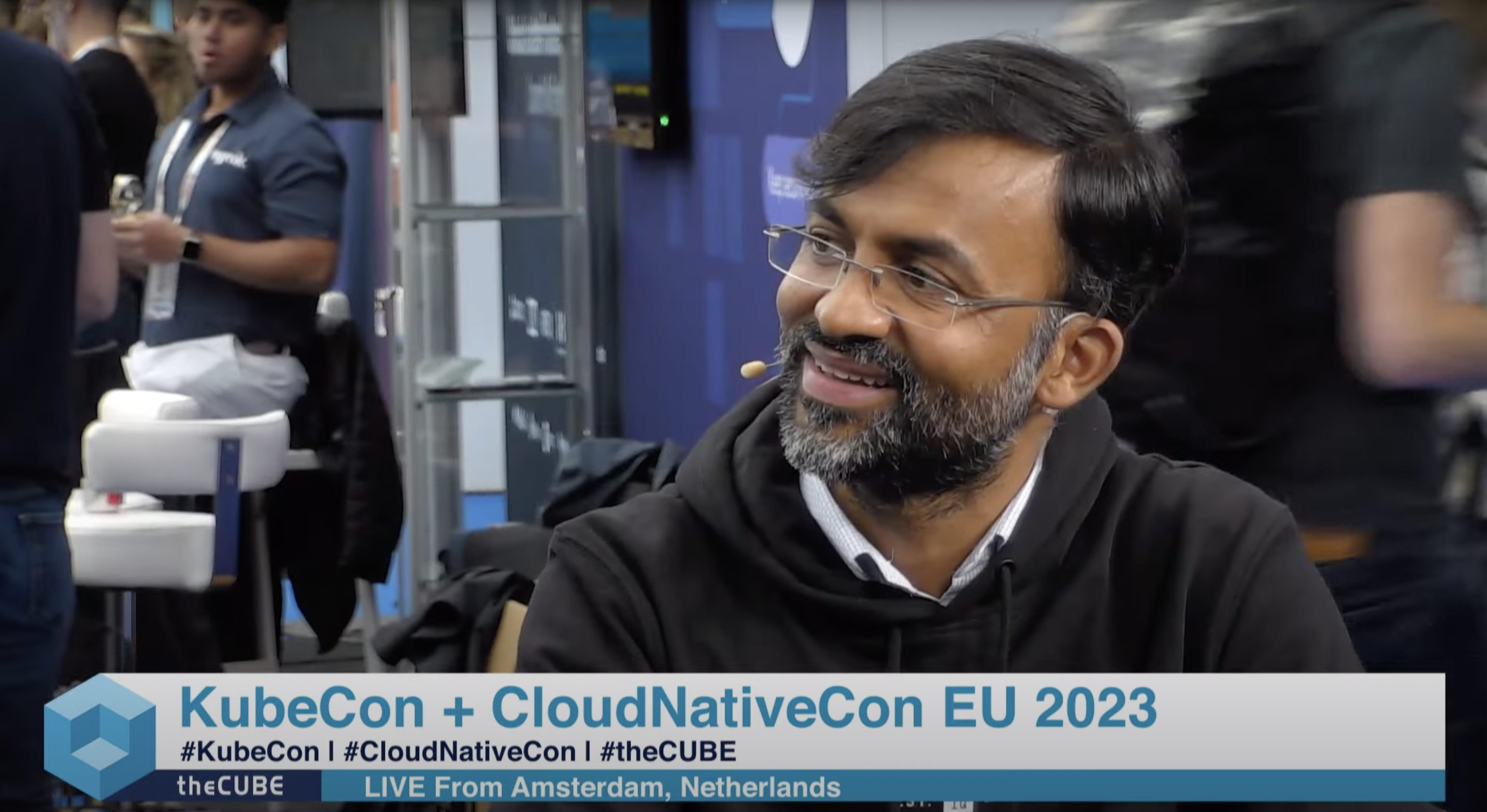
theCUBE, featuring: Deepak Goel
Platform engineering not only removes the complexity of deploying and managing Kubernetes that absorbs so much of a DevOps team’s time and energy, but also mitigates the cloud and cluster sprawl that has spread throughout so many organizations.
As Deepak explained, “There has been a trend that was started with when cloud services came along, where developers started doing their own thing, and that led to proliferation of different tooling, different ways of doing the same things.”
What platform engineering does, said Deepak, “is consolidate all those varieties to a standard tooling where developers can still achieve the agility that they hope to achieve with the cloud-native platform, but in a much more consistent and cost-effective manner.”
By providing a consistent and standardized way of deploying and managing Kubernetes, Deepak explained, platform engineering removes the burden of wrestling with Kubernetes configuration from developers so they can focus on developing applications, which makes their life easier.
D2iQ, said Deepak, has made the platform engineering process even easier for organizations by providing instant platform engineering, “which is using the right platform, right tooling, and providing an environment for developers where they can still feel self-managed and self-served, but under the guardrails of the platform that the platform engineering has provided.”
Platform engineering is about creating reusable standard tools that are scalable, that are consistent, and that bring consistency in managing the platform, said Deepak.
The D2iQ Kubernetes Platform (DKP) provides all these benefits in an instant platform engineering solution that is production-ready out of the box. Rather than reinventing the wheel, organizations can deploy a state-of-the-art Kubernetes management platform that has been built by the most skilled Kubernetes engineers in the industry.
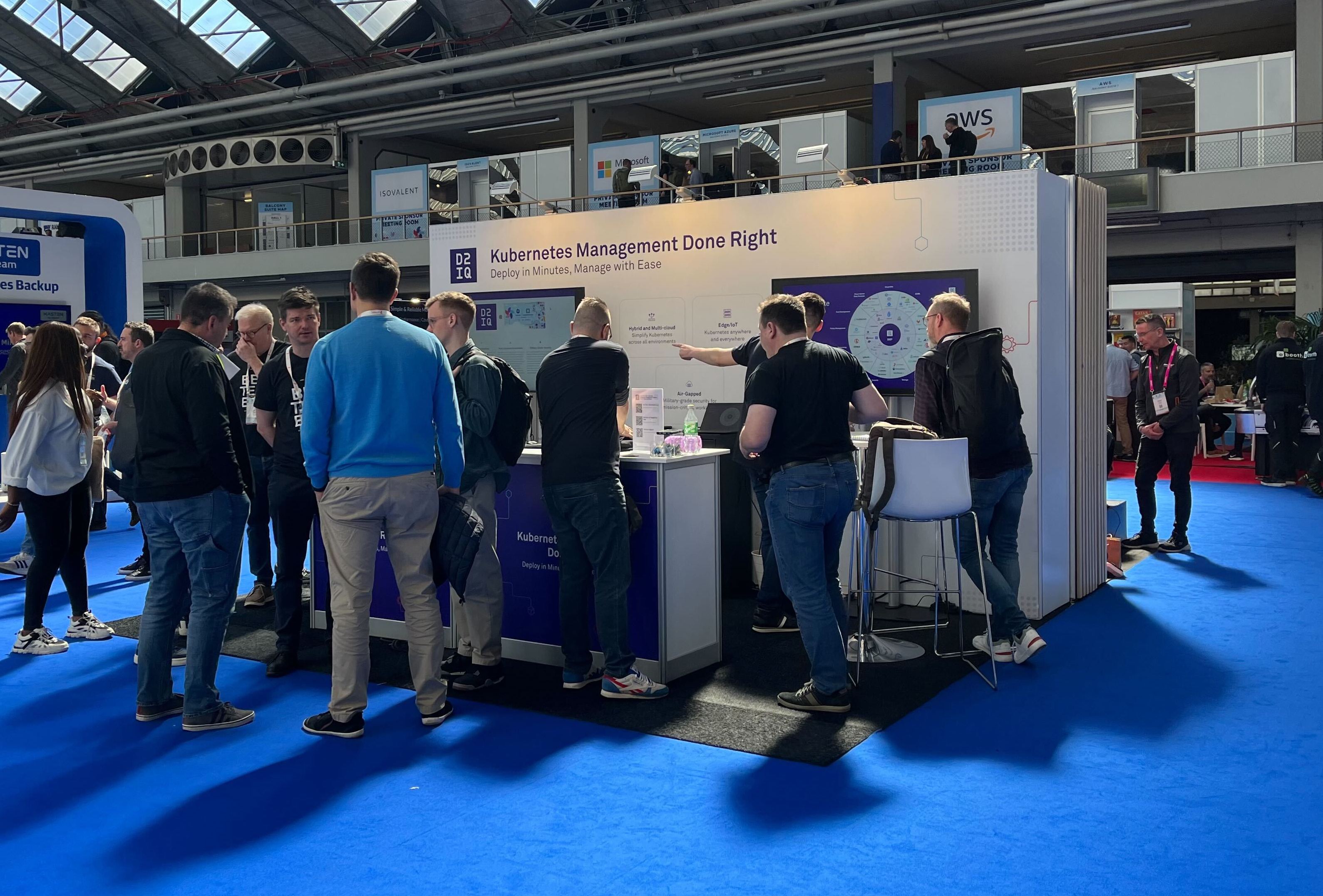
To learn how your organization can gain all the benefits of Kubernetes agility through instant platform engineering, speak with the experts at D2iQ.







